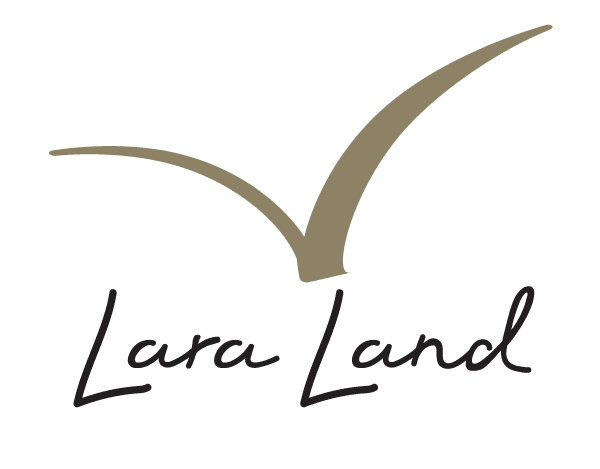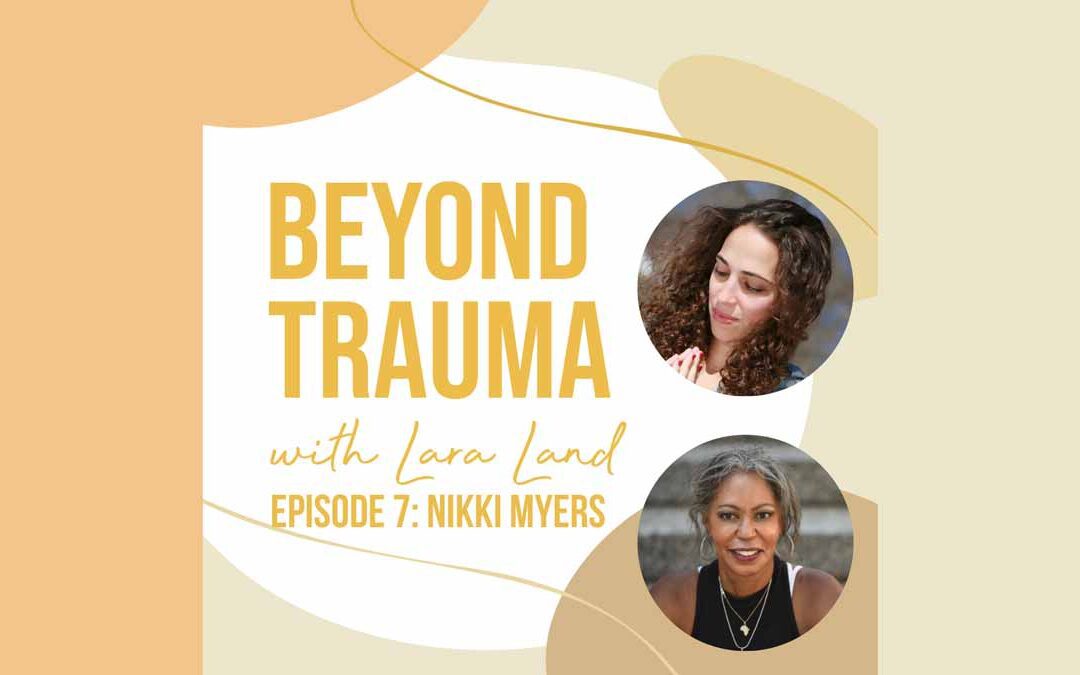
by Lara Land | Aug 29, 2022 | LAND BLOG, LARA LAND
For the many of you who practice Ashtanga yoga, breathing through your nose is a common practice as our core breathing style is Ujjayi Pranayama, a breathing technique where one inhales and exhales through the nose while gently lifting the roof of the mouth to slightly restrict the airway and create a soft humming sound.
But did you know how healing nostril breathing really is?
According to the research done by James Nestor which he lays out in his New York Times bestseller Breath, many of the illnesses which we believe shorten the breath, reduce lung capacity, or limit necessary blood oxygen levels may have reverse causation. This means, the disease isn’t affecting our breath, our inability to breath properly is causing the disease!
Diseases we consider mental disorders also show this link to poor breathing, including ADHA, anxiety and depression. Correct breathing eases the impacts of trauma.
That is the right way to breathe? Mainly, it’s through the nose. One should breathe through the nose not just during Ashtanga yoga or trauma informed yoga but all the time, including during strenuous exercise and while sleeping.
Nestor and the long list of specialists he interviews, urge us to breathe slowly and as little as possible which actually increases the amount of oxygen molecules that get delivered throughout our body.
It takes time to be able to breathe this way especially when stressed or triggered by previous trauma, but by incrementally training the body to breathe through the nose, slow down, and by increasing breath capacity by stretching and relaxing the muscles around the lungs we can reduce and even eliminate most illness. Tim Ferris’s latest podcast episode with Dr. Andrew Weil boasts the same advice.
The beautiful thing is that this is what we teach in my Ashtanga based trauma informed yoga classes at Three and a Half Acres. Our approach is to slowly increase breath capacity and get trauma survivors to use their nose! You can learn my approach to Ujjayi Pranayama, which is very subtle and less constrictive on my Intro to Ashtanga downloadable course which is also trauma informed.
Could curing our nation be as simple as breathing through the nose?
It’s something the medical industry doesn’t want you to know, but I think so.

by Lara Land | Aug 22, 2022 | LAND BLOG, LARA LAND
Are you overscheduled and under rewarded? Do you feel like you are always doing and at the same time nothing is getting done? Do you fantasize about completing dream projects but see them always falling to the bottom of your list?
You are not alone!
The business epidemic and culture of busyness that has infected the United States is a trauma response. It involves a certain learned hypervigilance that is not natural to human rhythms and it is harmful to our health. We are overscheduled, but why do we do it?
We overschedule ourselves for a number of reasons including not believing in ourselves, not wanting to face ourselves, fear of limited resources and lack of self love. We think we deserve punishment or that our personal value is caught up in our ability to be or even seem productive.
It isn’t!
Trauma responses always involve a hijacking of our nervous system that doesn’t allow us to see options and to view our life with creativity. When you notice this happening, aka when you are really busy, the best thing you can do is slow down.

by Lara Land | Aug 16, 2022 | LAND BLOG, LARA LAND
In case you haven’t noticed, the last few years have seen a real shift in the way folks are viewing, talking about, and experiencing yoga and the whole wellness industry. Gone are the days of gurus, clear lineages, and cookie cutter definitions of what wellness is.
Those who like categorizing and those who need homogenous interpretations to feel like they know something will feel stretched these days wading through the various information out there on health and wellness… And that’s a good thing?
As Kerri Kelly details in her recent release, American Detox, The Myth of Wellness and How We Can Truly Heal, the wellness industry has long been corrupted, offering us many ways to buy our health, while always leaving us needing more. This unending and careless approach convinces us we need money and products to be well and leaves many feeling confused and lonely when they haven’t reached the positive sumit they were promised.
It also leaves out one or two important facts about wellness… the biggest being that we can not reach it alone.
Wellness includes things like access to clean air and water, health care, time and space, education and compensation, systems we achieve through each other when we live in healthy and well societies. When the places we occupy lack in these areas all of us suffer, some, by design, more than others.
This is systemic trauma and it is a side of trauma that has not been studied or talked about nearly enough. Kerri Kelly is trying to change that.
She is also one of the strongest voices advocating for a personal definition of wellness. This type of agency is the empowerment trauma survivors need and deserve. The ability to define what is wellness for me, what I need for my mind/body/spirit system to thrive is integral to the wellness I wish to create.
For those of us in the trauma informed yoga or yoga service space like Kerri Kelly and I have been in for so many years, learning not just to bring in trauma informed yoga but to listen to what the trauma survivors we are serving are really asking for, has been crucial to our evolution.
I know it’s what we are doing at Three and a Half Aces Yoga.
Take a listen to Kerri’s work and actions on my latest Beyond Trauma podcast on iTunes or Spotify as we talk about systemic trauma and the harm it is doing to all of us, no matter how close we sit to privilege.

by Lara Land | Aug 8, 2022 | LAND BLOG, LARA LAND
One of the greatest and often unspoken about causes of trauma is medical trauma.
Medical trauma can occur when a child is subjected to a procedure that they don’t understand or to folks of any age when tests are being done which aren’t explained. Medical trauma can also become present when a patient isn’t listened to or doesn’t have their wishes respected. Sometimes something as “small” as lack of eye contact, touch and affirming words can cause trauma in a medical atmosphere.
I recently had the experience of having to go to a hospital in Spain. My doctor who spoke English rushed me through my assessment missing the vital information I was giving her about the over two weeks of symptoms I had just experienced. Many of the clues to my diagnosis were there inside my story, but Instead of listening, and even after showing no pain during her brief exam of stretches, she decided that I had sciatica. When I insisted I didn’t, she sent me through the machine of hospital operations from pain medication injection (which didn’t work to X-ray which I didn’t need or want and eventually refused.
In between, a variety of folks who I assume were nurses and who didn’t speak English took blood and urine. I tried to ask questions but there was a lot of running around and it was impossible to find someone to speak with me. All I could see was that everyone from the nauseous guy next to me to the guy with gout on the other side was getting the same treatment. It was finally when they were wheeling me to X-ray and I saw my husband who hadn’t been allowed in with me that I had the supportive energy that allowed me the confidence to say no to the X-ray and ask for an English speaking representative. I was made to sign documents that I was refusing treatment and was sent away with a prescription for pain meds. It was not until I was about to leave the hospital that the doctor came and found me having realized my true diagnosis which required antibiotics and could have soon become dangerously serious.
I’m still waking up thinking about it all.
This is not the first time I’ve experienced medical trauma. Birth trauma is another experience that sticks with me. Birth trauma had such an impact, that I’m feeling activated / triggered now as I begin to write this. After months of preparing with a doula and birth classes for a “natural“ birth, I was rushed to be induced when it was determined the baby inside me had no fluid around her. This came after some other stressful and frankly traumatic encounters in pregnancy including having the only hospital adjacent both center in my area shut down,I was actually excited to be induced and start moving forward finally as a mom.
Induction however in a hospital setting starts a whole chain of practices and procedures that severely limit birth choice. I had to be constantly hooked up to machines with chords so short that whenever I changed position even in the slightest it set off alarms to the nurses who dutifully entered and reset the attachments. This was brutal medical trauma as I was really committed to laboring in squatting and other non reclining positions. My only choice was to lay or stand. I stood a lot next to the machine. It wasn’t fun or productive for labor and towards the end when no doctors or nurses were there and it was just myself, my husband, and my dula I ended up in squat and cat/cow positions on my bed moving my way until the final birthing team arrived. Things got even more dramatic then but I’ll spare you the details.
I do still wake up some days and I’m brought to tears wondering how birthing my daughter could have been different.
Those days I work with trauma sensitive embodiment tools to process the birth trauma I still feel in my body.
If you’ve experienced medical trauma or birthing trauma it may take some time to trust folks in the medical field. Having an advocate with you, can help a lot. In both cases it was my husband who was able to give me the loving care and the permission to use my voice in the way I needed to feel safer.
Have you dealt with medical or birthing trauma? Let me know in the comments below.

by Lara Land | Aug 1, 2022 | LAND BLOG, LARA LAND
I’ve probably mentioned this already, but my husband always says that a person’s opinion is the least interesting thing about them. I think that’s about the greatest thing I’ve ever heard.
In a social media driven world overrun with opinions, I’m left constantly wondering if any of the folks I encounter spouting their strong AF views ever give any consideration to the positionality and life-experience they are coming to those from. Or do some actually believe they are neutral, blank canvases? I know the Supreme Court would have us think they are though it is so obviously not true.
In fact, the United States great lie is that there is this fair neutral view which is why so many of us are going great lengths to call it out as biased and blind and supportive of white, male, able-bodied needs and desires.
It’s not only our views, but our way of thinking which we are addicted to.
By the time we are adults, the way we process information, weigh priorities and outcomes and come to conclusions is all habitual, feels good and right and we are addicted to it.
We are affirmed in our addiction by our peers and circles and followers who tend to think as we do, creating what is commonly called the echo chamber.
New ways of thinking are harder to come by in later years when we are less exposed to the new frameworks and paradigms we get at school. We have to seek out more fringe ideas, philosophies and teachers and listen to folks who think differently, trying on their thinking and working through thought exercises and giving our brains a good stretch.
This is something I have enjoyed doing via podcasts I listen to which in the past years have led me down many different styles of thinking but most notably, metamodernist thought projects and system change queries. I am so grateful.
Nikki Myers, the latest speaker on the Beyond Trauma podcast, is known for her work combining the twelve step program with yoga to help folks with addiction. However, her knowledge and practices are actually so much more than that. The way she explains and curtails addiction goes all the way to the way we think.
Take a listen on iTunes or Spotify and leave me a review to let me know what you think!






Recent Comments